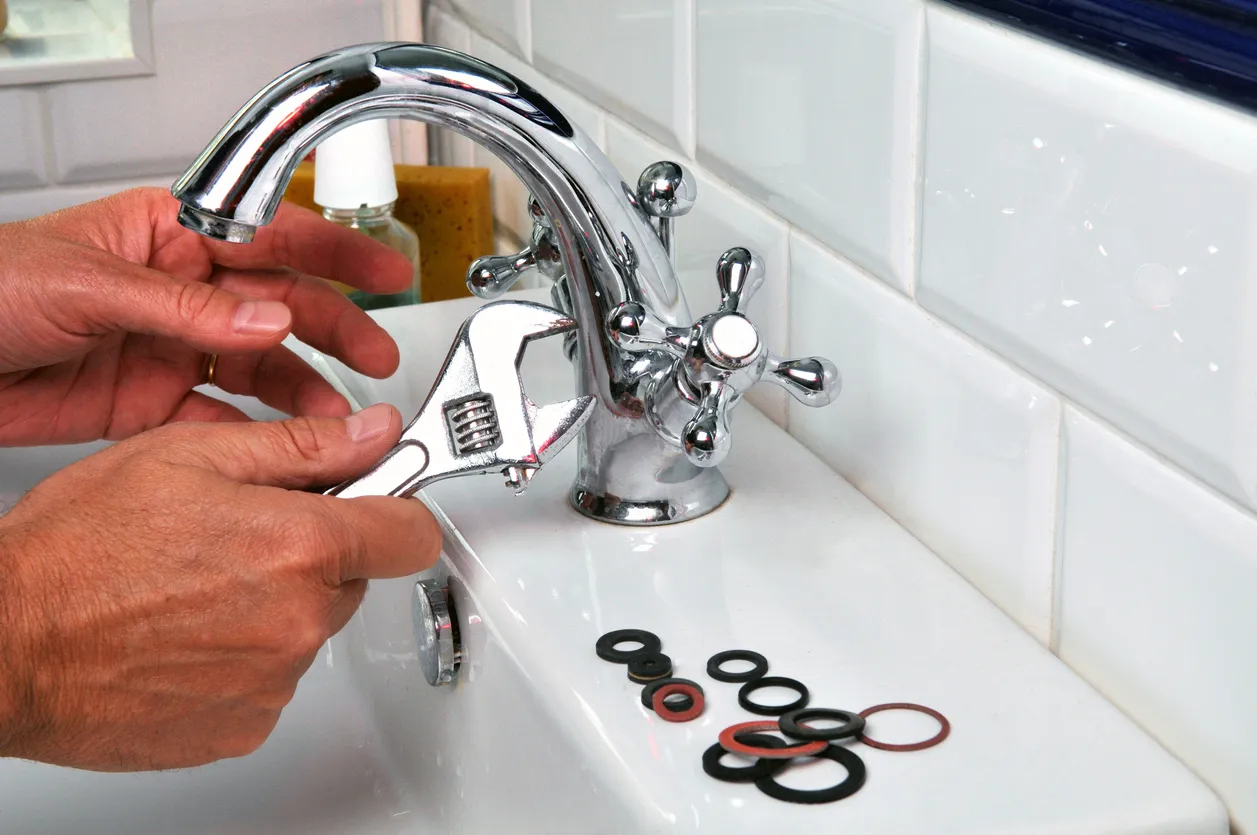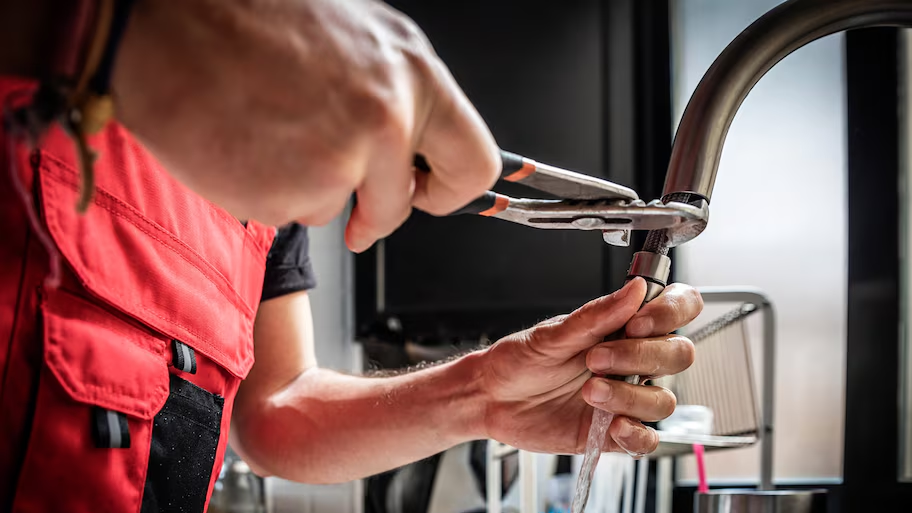When It's Crucial to Mend a Faulty Faucet
When It's Crucial to Mend a Faulty Faucet
Blog Article
Right here on the next paragraphs you will find a lot of wonderful insight pertaining to What Causes Leaky Faucets & How To Fix Them.

Leaking faucets may feel like a small aggravation, however their impact exceeds simply the inconvenience of the audio. From drainage to incurring unnecessary monetary prices and health and wellness threats, neglecting a trickling faucet can result in various effects. In this short article, we'll look into why it's crucial to address this common household problem quickly and successfully.
Wastage of Water
Environmental Influence
Leaking faucets add significantly to water wastefulness. According to the Environmental Protection Agency (EPA), a single faucet trickling at one drip per secondly can lose greater than 3,000 gallons of water per year. This not just pressures water resources however additionally impacts ecosystems and wild animals depending on them.
Step-by-Step Guide to Fixing a Dripping Faucet
Devices Needed
Before trying to deal with a leaking tap, collect the essential devices, consisting of an adjustable wrench, screwdrivers, replacement components (such as washers or cartridges), and plumber's tape.
Typical Faucet Issues and Their Solutions
Determine the sort of faucet and the certain concern triggering the drip. Typical issues consist of damaged washers, corroded shutoff seats, or faulty O-rings. Describe supplier instructions or on the internet tutorials for step-by-step support on repair services.
Financial Expenses
Raised Water Expenses
Past the environmental impact, leaking taps can pump up water costs substantially. The collected waste over time converts into greater energy expenditures, which can have been stayed clear of with prompt fixings.
Prospective Building Damage
In addition, prolonged dripping can bring about damage to components and surface areas surrounding the tap. Water accumulation can cause discoloration, rust, and even architectural problems if left ignored, leading to extra repair work costs.
Health and wellness Issues
Mold and Mold Development
The constant visibility of moisture from a leaking tap produces an ideal environment for mold and mold development. These fungi not only endanger interior air high quality but additionally position health dangers, specifically for individuals with respiratory system conditions or allergic reactions.
Waterborne Diseases
Stationary water in dripping taps can become a breeding place for germs and various other microorganisms, increasing the threat of waterborne illness. Impurities such as Legionella germs thrive in stagnant water, possibly resulting in significant ailments when ingested or breathed in.
DIY vs. Specialist Repair
Benefits and drawbacks of Do It Yourself Repair
While some may try to deal with a dripping faucet themselves, do it yourself fixings come with their very own set of difficulties. Without appropriate knowledge and devices, do it yourself attempts can worsen the concern or bring about incomplete repairs, prolonging the issue.
Advantages of Hiring a Specialist Plumber
Working with a specialist plumber makes certain that the underlying reason for the dripping faucet is attended to successfully. Plumbing professionals have the experience and devices to diagnose and fix tap issues successfully, saving time and reducing the threat of additional damage.
Environmental Duty
Specific Payment to Conservation
Taking responsibility for fixing trickling faucets lines up with more comprehensive efforts towards water conservation and environmental sustainability. Every person's activities jointly make a significant impact on protecting priceless sources.
Lasting Living Practices
By focusing on prompt repairs and adopting water-saving practices, individuals add to lasting living methods that benefit both present and future generations.
Preventive Measures
Normal Upkeep Tips
To avoid leaking faucets, perform routine upkeep such as cleansing aerators, evaluating for leakages, and changing worn-out components immediately. Furthermore, consider mounting water-saving gadgets or upgrading to extra effective fixtures.
Relevance of Prompt Repair Works
Attending to dripping faucets as quickly as they're noticed stops further water wastefulness and prospective damages, ultimately conserving both water and cash in the long run.
Effect On Home Worth
Understanding of Well-Maintained Residential Or Commercial Property
Preserving a residential property in good condition, including addressing maintenance problems like trickling taps, boosts its regarded worth and worth among prospective customers or occupants.
Influence on Resale Value
Features with well-maintained plumbing fixtures, including faucets, command higher resale values in the real estate market. Resolving leaking faucets can contribute to a positive impression during building examinations and negotiations.
Final thought
Attending to a leaking faucet surpasses simple comfort; it's a vital action toward conserving water, minimizing economic costs, and protecting health and wellness and property. Whether through DIY repair services or expert help, doing something about it to deal with trickling taps is a little yet impactful means to advertise liable stewardship of resources and add to a much healthier, extra lasting future.
How to Fix a Leaky Faucet: Step-by-Step Repair Guide
A leaky faucet may seem like a simple annoyance, but if it's not fixed promptly, that leak could cost hundreds to potentially thousands. From water damage to mold, mildew, and high water bills, even a tiny leak can be catastrophic if left unattended. Damage like this can even affect the overall value of your home, so it's important to take the right approach for leaky faucet repair. You may need the help of a plumber in some cases, but we've got a few tips you can try on how to fix a leaky faucet before calling the pros.
Four Faucet Types
When you're learning how to fix a leaky faucet, the first step is knowing what kind of faucet you're working with! There are four common types.
Cartridge Faucets
Cartridge faucets come in one- or two-handled varieties. In one-handled cartridge faucets, hot and cold water combines in a single cartridge. In the two-handled versions, hot and cold water are controlled separately and mixed in the faucet.
Ball Faucets
Ball faucets have a single lever you push up and down to adjust the pressure and rotate to change the temperature. A slotted metal ball controls the amount of water allowed into the spout.
Compression Washer Faucets
They're the oldest type of faucet, but they're still used in many homes — especially older ones. Compression faucets have two separate handles that, when turned, raise or lower the washer that seals a water valve. This valve stops water from flowing through the faucet when it is turned off.
Disc Faucets
Disc faucets rarely need to be repaired due to their maintenance-free design. The water flow is controlled by two discs — the upper one raises and lowers against a fixed lower disc, creating a watertight seal. If your disc faucet starts leaking, you may need to replace the seals or clean residue buildup from the inlets.
Fixing a Leaky Faucet
Step 1: Turn Off the Water
Whether you're learning how to fix a leaky bathtub faucet or how to fix a leaky kitchen faucet, always turn off the water supply to your working area when you're fixing a leak. The last thing you want is a flood added to your list of things to fix.
Look for the shutoff valves below your sink or around the tub and turn them clockwise to stop the water flow. If your faucet doesn't have shutoff valves, you may need to turn off the water for the whole house. Check to make sure it's off by turning the faucet on. If nothing comes out, you're ready to start the repair.
Step 2: Take Apart the Faucet
How you disassemble your faucet depends on the type of fixture you have. You can use a flathead screwdriver to remove the caps on top of the handle or handles for cartridge and compression faucets. Inside, you should see handle screws. Unscrew these with a screwdriver to remove the handle.
Disc- and ball-style faucets will typically have an inlet screw near the handle, and removing that will reveal the interior of the faucet.
Detach the Valve Stem
For cartridge- and compression-style faucets, you'll see the inner valve stem or cartridge once you remove the faucet handles. If you have a compression faucet, unscrew the brass valve stem. If you have a cartridge faucet, pull out the cartridge. If your cartridge has been in place for a while, it may require some tools or extra force to remove it due to mineral deposits.
Examine and Replace Parts
Once you've removed the parts, check them out to confirm what needs to be replaced. You may see corroded rubber washers, O-rings, stems, or cartridges. On a ball-style faucet, check the seats and springs for damage.
If you need to repair a leaky disc faucet, check the inlet and seals on the lower disc.
Once you determine what parts must be replaced, visit your local hardware store. Bring the damaged parts with you to ensure you can purchase the correct components to replace them.
Clean Valves and Faucet Cavity
If you've removed a stem or cartridge, you may notice mineral buildup in the faucet's threads. Use white vinegar to clean the valve seat by soaking it for a few minutes, then scrub it away with a soft toothbrush and rinse with warm water. You can also clean the interior of the faucet in the same way.
Reassemble the Faucet
Once your faucet is cleaned and the required parts have been replaced, it's time to reassemble it. Put the pieces back together and slowly turn the water supply back on. Doing this slowly is crucial because too much initial water pressure can damage the new hardware you've just installed.
https://homewarranty.firstam.com/blog/how-to-fix-leaky-faucet

As a reader on Why Is It Important To Fix Your Leaking Tap/Faucet?, I was thinking sharing that post was smart. Liked our post? Please quickly share it. Help others check it out. Many thanks for taking the time to read it.
Report this page